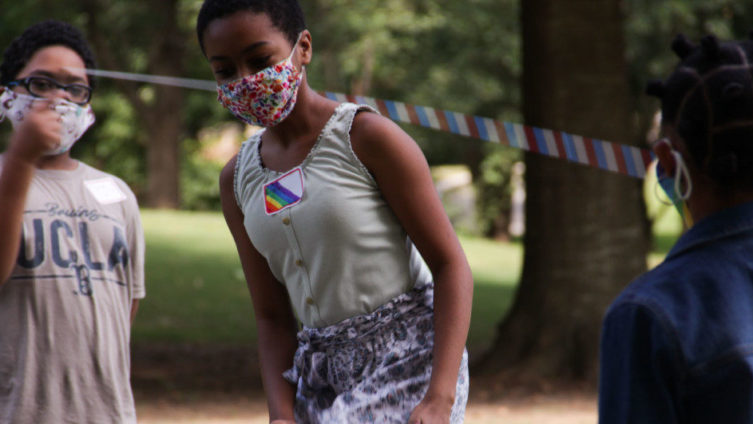
The Children’s School’s nurturing environment is an invitation for exploration, creation, and inquiry in which children feel safe, joyful, and excited to learn.
A typical classroom at TCS is one that gives children the security and opportunity to discover themselves, their world, and allows them to be their authentic selves.
Children thrive in a nurturing environment because their physical, emotional, and developmental needs are being met. Developing comfort in taking risks gives children the ability to learn and play in a place where they know they are safe to fail, fueling their critical thinking and creative skills and helping them to navigate through a world that is filled with inconsistency and uncertainty.
By allowing imagination, creativity, and self-esteem to grow, our children develop deep intellectual, social, emotional, physical and cultural development — the building blocks for a lifetime of learning.
Character education, mindfulness and emotional regulation, problem-solving, and conflict resolution are critical to academic success. These essential social-emotional skills help children to persist on challenging tasks, to effectively seek help when they need it and to be thoughtful in their actions. Strong social-emotional skills can help children in a wide variety of social and academic settings.
TCS develops these skills through play and through our character education program, Building Character & Community (BCC) program. BCC is embedded in our curriculum and informed by the responsive classroom approach and supports the development of executive functioning skills like self-control, attending, planning/organizing, and metacognition. It involves at least two formal lessons, discussions, and activities led by our school counselor, Dr. Natalie Grubbs, and teachers, as well as discussions, book readings, assemblies, and activities or “teachable moments” facilitated throughout each school day.
When our children socialize through play, they are learning to communicate with others and are discovering what is meaningful to them. This socialization is paramount in developing relationships because children are learning the give and take of friendships as well as learning limits. When our children are communicating and listening to each other, they are learning vocabulary, thinking out loud, and self-regulation. In addition, through play, our children learn how to cope with unexpected scenarios that will often test their emotions. Through problem-solving and risk-taking our children will work through new emotions and learn how to handle unexpected challenges.
Children with strong social and emotional skills can establish positive relationships and are more likely to experience positive well-being. Positive relationships between teachers and students have a significant and long-lasting impact on students’ lives, both socially and academically.
Our teachers build effective, positive relationships with students by showing that they truly enjoy being with their students. The foundation of the relationship involves consistent communication, emotional safety, and mutual trust and respect. Teachers interact with students in a respectful and responsive manner, help students reflect on their learning, and get to truly know their students on a personal level by understanding their backgrounds, interests, strengths, and challenges.
When the relationship between student and teacher is strong, students feel safe to take risks, there is a strong bond of trust in the classroom, and students are more likely to have a positive outlook about school as well as have a greater chance of developing a true love of life-long learning.









